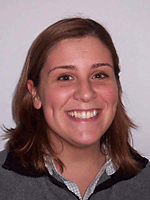 The TAPPI Kraft Recovery Course, January 9 - 12, 2012, in St. Petersburg, Fla., USA, can be equally beneficial for mill veterans and industry "newbees" in the critical chemical recovery island of today's kraft pulp mill. A relative newbee attendee at last year's course, Maggie Gerhart, a reliability engineer at International Paper's Courtland, Ala., mill, says the course gave her some practical, highly valuable take-backs that will enrich her career development for many years to come.
The TAPPI Kraft Recovery Course, January 9 - 12, 2012, in St. Petersburg, Fla., USA, can be equally beneficial for mill veterans and industry "newbees" in the critical chemical recovery island of today's kraft pulp mill. A relative newbee attendee at last year's course, Maggie Gerhart, a reliability engineer at International Paper's Courtland, Ala., mill, says the course gave her some practical, highly valuable take-backs that will enrich her career development for many years to come.
With a degree in Paper Engineering from Western Michigan University, Gerhart interned with International Paper and co-op'd with PCA at Tomahawk, Wis., before starting in the power area (including chemical recovery) at Courtland in late January 2010. "Before taking the Kraft Recovery Course this past January, I was somewhat familiar with chemical recovery operations, having learned about the processes in school together with six months of experience from my rotation in the power house," she says.
Gerhart's goal in attending the 2011 Kraft Recovery Course was to build on what she already knew, to acquire more in-depth knowledge in areas she was not that familiar with. "I knew some kraft recovery technologies fairly well, but there were other areas where I knew a little terminology but didn't know much else. I wanted to gain the fundamentals in all areas and get the resources I needed to learn more."
A particularly effective element of the course, according to Gerhart, was the problem solving focus on real, operating floor issues brought to the discussions by the attendees themselves. "After each course topic, we had a question and answer session where attendees were able to discuss equipment or process topics that interested them, from chronic issues to application of new technology. I discovered that a lot of us have similar questions and concerns. It was beneficial to hear how others worked through their issues successfully. I think we all came back with good ideas that we could try at our own mills."
Though she thinks that newbees especially can benefit from the course, Gerhart believes, from what she observed, that experienced mill operations people at all levels also found some very valuable take-back information. The course's networking element is a key feature in this regard, she notes, adding that no matter how much experience a person has, no one is totally experienced in all areas. "We can always learn more from each other."
The course instructors "were the industry's top experts and the right people to be teaching it," Gerhart points out. "And the course materials that I took home are extremely helpful. The binder and CD are well organized. I use these materials at the mill frequently, going back over my notes and adding new notes every time I come back from a project. I think I will probably use these notes forever. I was the only one from my mill to attend the course this year, but I think it helped others here who didn't attend."
TAPPI
http://www.tappi.org/